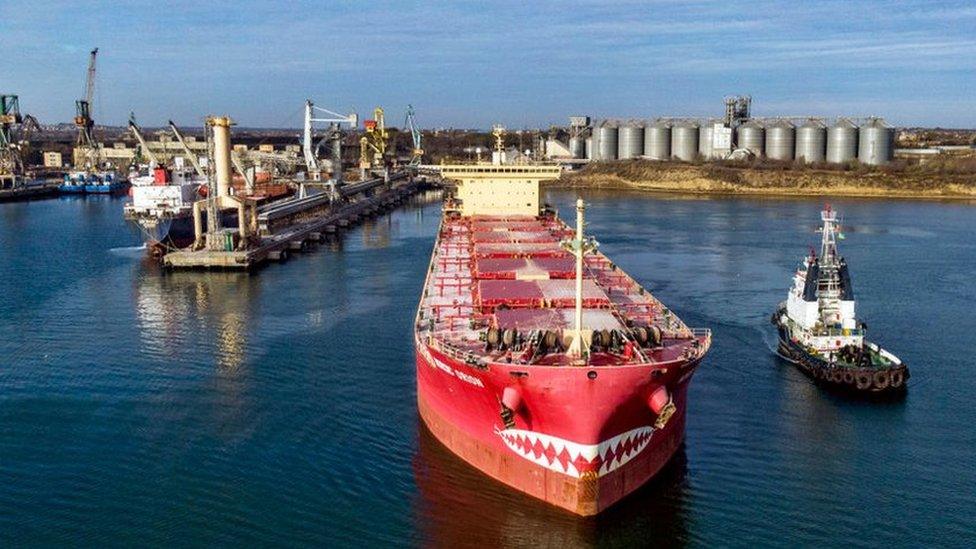War a real threat and Europe not ready, warns Poland's Tusk
- Published
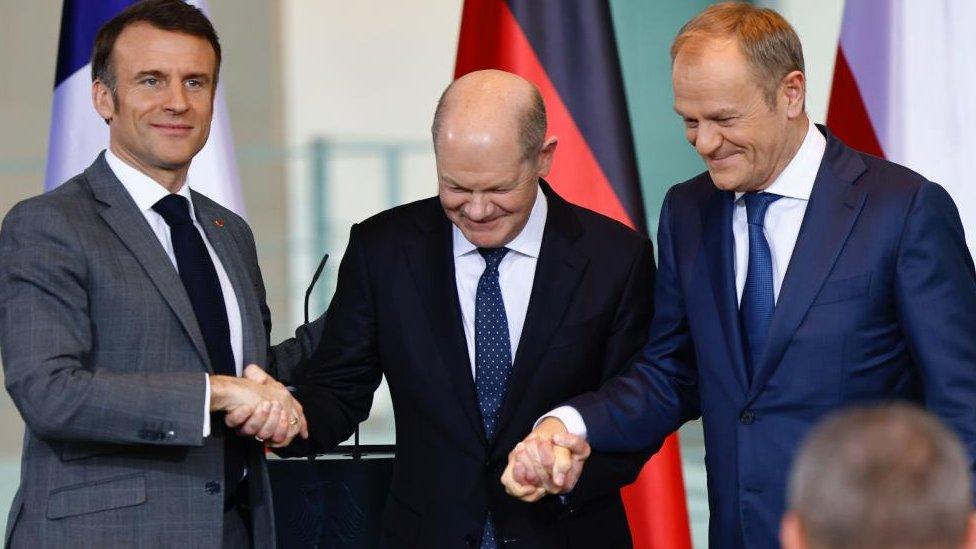
Mr Tusk (R) praised a change in mentality among European allies but said the next two years were critical
Polish Prime Minister Donald Tusk has warned Europe is in a "pre-war era" and Ukraine must not be defeated by Russia for the good of the whole continent.
He said war was "no longer a concept from the past", adding: "It's real and it started over two years ago."
His comments came after Russia launched a massive attack on Ukraine's energy system on Thursday.
Russian President Vladimir Putin said this week Moscow had "no aggressive intentions" towards Nato countries.
The idea that his country, which has one of the world's largest nuclear arsenals, would attack Poland, the Baltic states and the Czech Republic - which are all members of the Nato alliance unlike Ukraine - was "complete nonsense", he said.
However, he warned that if Ukraine used Western F-16 warplanes from airfields in other countries, they would become "legitimate targets, wherever they might be located".
After Russia launched its full-scale war in Ukraine in February 2022, relations with the West reached their lowest ebb since the worst days of the Cold War.
Almost 100 missiles and drones were used in the latest Russian attack on Ukraine, leaving several regions experiencing partial blackouts.
It was the second attack of its kind - in which Russia fires a large number of weapons simultaneously to overwhelm Ukraine's defences - in the space of a week.
Ukrainian President Volodymyr Zelensky has called the tactic "missile terror" and warned attacks on hydro-electric power plants could lead to a major environmental disaster.
Speaking to the BBC, the mayor of Kharkiv - where small businesses are relying on generators and industry is struggling amid blackouts - described the damage to the grid as "very serious" and said it could take two months to fully restore.
Appealing for urgent military aid for Ukraine, Mr Tusk warned the next two years of the war would decide everything, adding: "We are living in the most critical moment since the end of the Second World War."
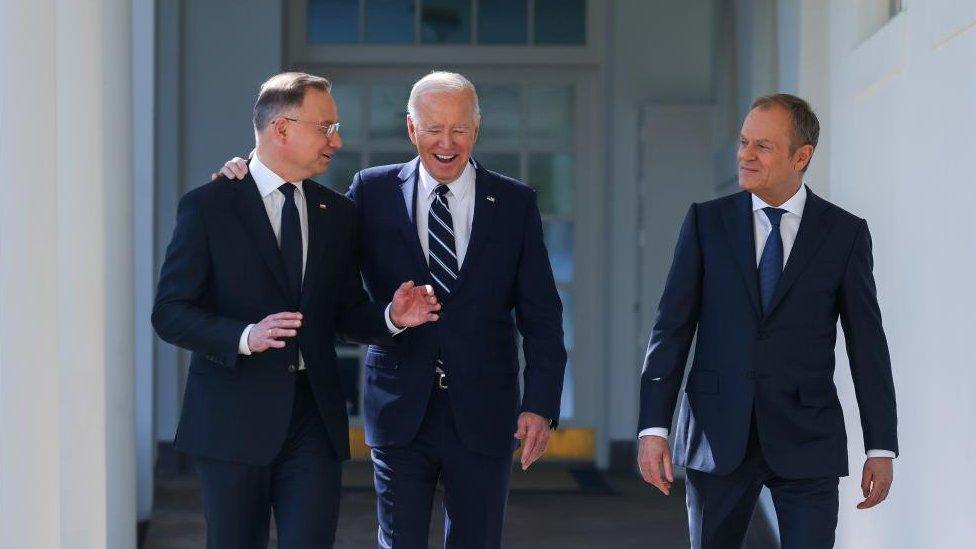
Mr Tusk (R) and Polish President Andrzej Duda held talks earlier this month with President Biden at the White House
Delivering his stark intervention on European security, he pointed out Russia had attacked Kyiv with hypersonic missiles in daylight for the first time.
He said Mr Putin's attempt to blame Ukraine for the jihadist attack on Moscow's Crocus City Hall without evidence showed the Russian president "evidently feels the need to justify increasingly violent attacks on civil targets in Ukraine".
Mr Tusk used his first interview with European media since returning to the office of Polish prime minister at the end of 2023 to urge leaders around the continent to bolster their defences.
He said Europe did not need to create "parallel structures to Nato" but the continent would be a more attractive partner to the US if it became more self-sufficient militarily, regardless of who wins America's November presidential election.
Poland now spends 4% of its economic output on defence, while other European nations have not yet achieved the Nato target of 2%.
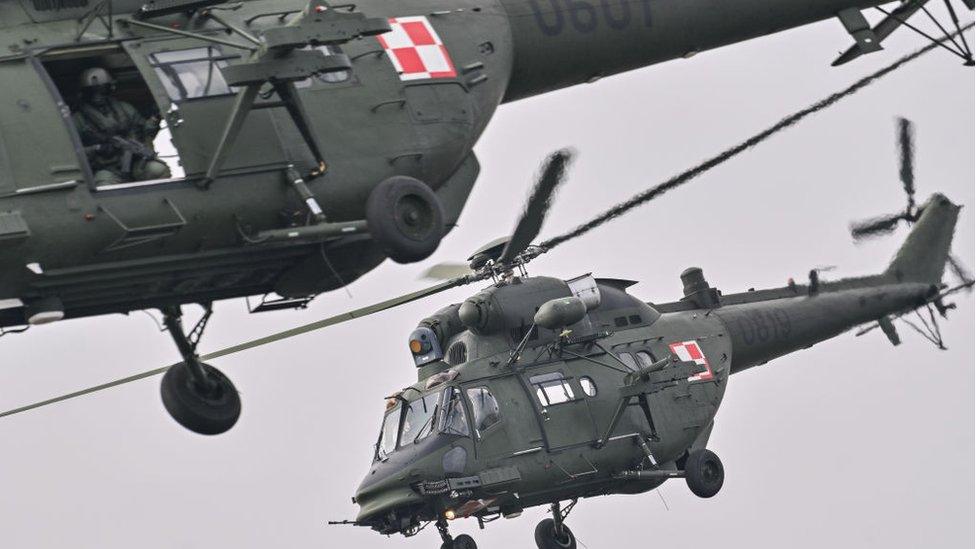
Mr Tusk said Poland now spent 4% of its GDP on defence and called on other EU states to meet a 2% target
Mr Tusk, a former president of the European Council, has warned Europe must be prepared for war before.
He revealed Spain's Prime Minister Pedro Sánchez had asked fellow EU leaders to stop using the word "war" in their summit statements because people did not want to feel threatened.
Mr Tusk said he had replied that in his part of Europe, war was no longer an abstract idea, warning "literally any scenario is possible".
He continued: "I know it sounds devastating, especially to people of the younger generation, but we have to mentally get used to the arrival of a new era. The pre-war era."
When he was Polish prime minister for the first time, from 2007 to 2014, he said few other European leaders beyond Poland and the Baltic states realised Russia was a potential threat.
Mr Tusk was more optimistic about what he called a real revolution in mentality across Europe.
Meanwhile, Ukraine's newly appointed commander-in-chief Gen Oleksandr Syrskiy admitted in a rare interview that Russia was outgunning Ukrainian forces "about six to one" on the front line.
He said Ukraine had lost territory it would "undoubtedly have retained" had it been supplied with sufficient ammo and air defence system, and described the situation in some battle areas as "tense".


The latest warning from Poland's prime minister echoes what his neighbours in the Baltic states have been saying for some time; if Russia can get away with invading, occupying and annexing whole provinces in Ukraine then how long, they fear, before President Putin decides to launch a similar offensive against countries like theirs, that used to be part of Moscow's orbit?
Defence spending per capita is noticeably higher in the Nato countries bordering Russia than it is in Western Europe.
Vladimir Putin, who critics say has just "reappointed himself" to a fifth presidential term in a "sham election", has recently said he has no plans to attack a Nato country.
But Baltic leaders like Estonia's Prime Minister Kaja Kallas say Moscow's word cannot be trusted. In the days leading up to Russia's full-scale invasion of Ukraine in February 2022 Russia's Foreign Minister Sergei Lavrov dismissed Western warnings of the imminent invasion as "propaganda" and "Western hyperbole".
- Published22 March 2024

- Published24 March 2024
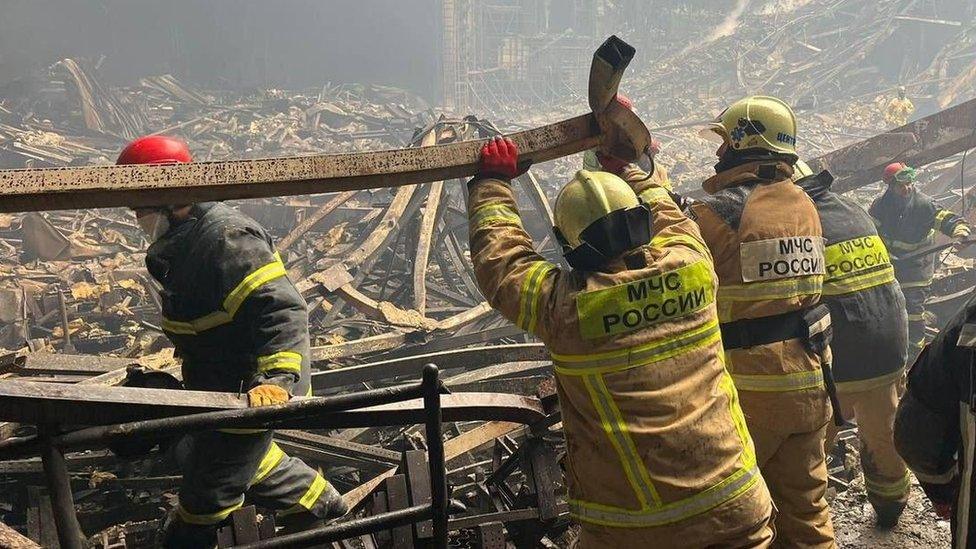
- Published15 March 2024
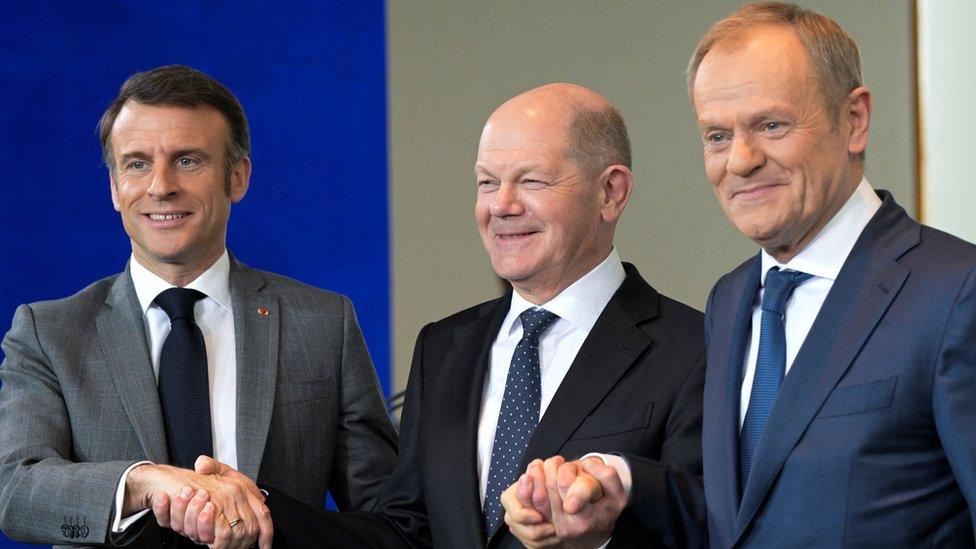
- Published12 December 2023
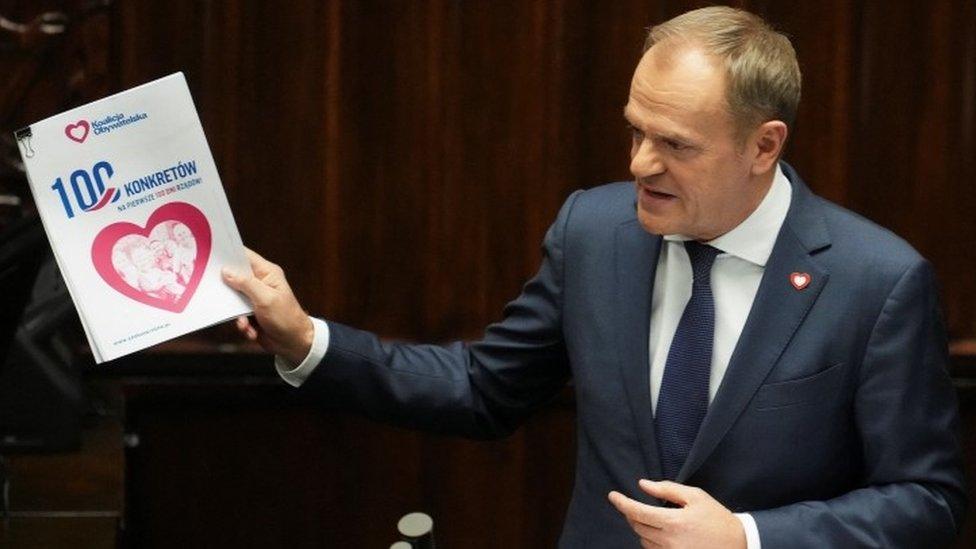
- Published2 April 2024
